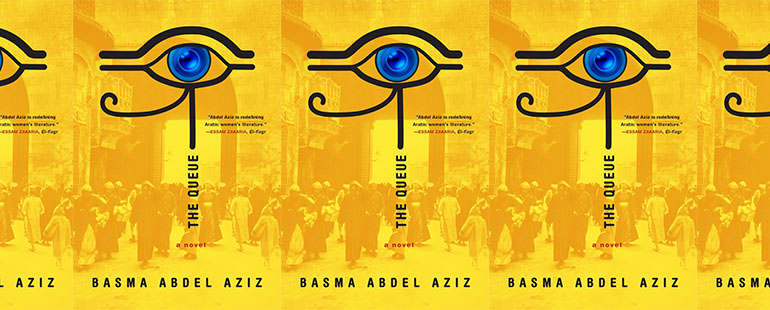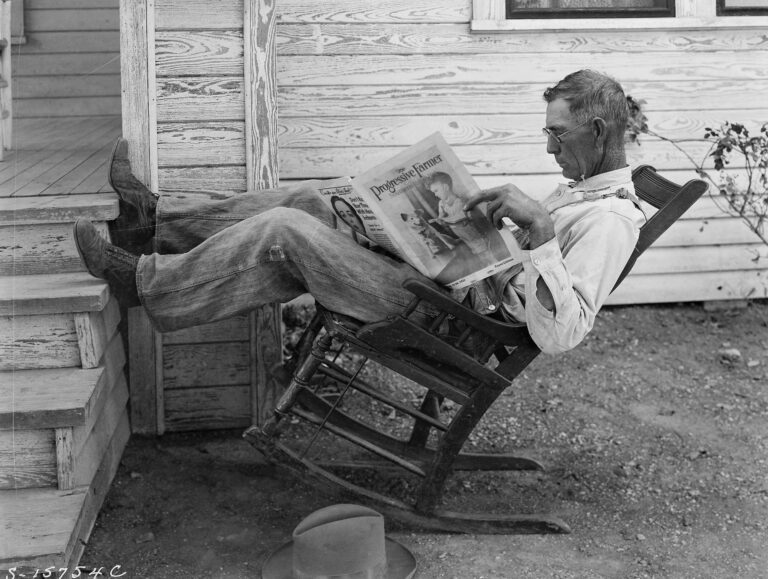Visibility as Dissent in the Panopticity

Basma Abdel Aziz’s debut novel, The Queue, translated to English by Elisabeth Jacquette in 2016 and set in an unnamed, futuristic city with many parallels to Cairo post-2011, depicts a world of crushed revolution under tyrannical state surveillance. An all-seeing, mysterious Gate governs the city, issuing decrees, laws, and permits to its residents, but the Gate remains closed for the entirety of the novel, forcing the people to form an unending queue as they wait for their necessary requests and permits to be approved. (The main character, Yehya, seeks authorization to remove the government bullet that wounded him in the Disgraceful Events—or, as is heavily implied, the revolution in Tahrir Square.) This construction contains unmistakable parallels to Helga Tawil-Souri’s theory that Jerusalem under oppressive surveillance is a “panopticity”—a reference to Jeremy Bentham’s panopticon; as similar tactics of controlling certain populations become increasingly widespread, Abdel Aziz’s dystopia thus gives us a peek into the authoritarian future to which such surveillance could lead. Within the tyrannical panopticity, Abdel Aziz insists on the power of visibility as double-edged tool of oppression and revolution.
Bentham’s panoptic system, which places a central tower in a prison, out of which a guard can see all the prisoners, creates a sense of constant potential surveillance—the prisoners do not know when the guard is present and therefore assume they are always watched, effectively regulating themselves as a result. Tawil-Souri furthers this thinking to uncover the way the panoptic system defines Israeli surveillance and control of Palestinians in Jerusalem in her essay “Surveillance Sublime: The Security State in Jerusalem.” She identifies three key methods of surveillance which uphold Bentham’s panopticon: the redrawing of territorial limits to enact surveillance through enclosure; the use of the census, entry permits, and identification requirements as “part of the matrix of surveillance”; and the invasiveness and total permeation of Israeli surveillance as a breach of privacy. In using these tactics, Jerusalem, she says, is a “panopticity”—an extension of Bentham’s panoptic system that uses invasive visibility to infringe on the rights of a city’s residents, imprisoning them despite their alleged freedom.
Following Tawil-Souri’s framework, the city in The Queue can, similar to Jerusalem, be read as a panopticity. Each of Tawil-Souri’s main components of Jerusalem’s panoptic structure appear in The Queue: control of territory, bureaucratic identification and paperwork requirements, and invasive surveillance that breaches privacy rights. Tawil-Souri writes that “the control of territory further determines who can go in, who can go out, and who can move around. The successive expansion of Jerusalem’s municipal boundaries and controls have not been haphazard, but meticulously calculated depending on the number and intensity of Palestinian populations present.” Abdel Aziz depicts a strikingly similar meticulous control of territory in her novel, specifically regarding the queue waiting in front of the gate. Near the end of the book, the city builds a wall around those waiting: “As the queue swelled and extended into far-off, practically uninhabited districts, the Gate issued a decree for a wall to be built around everyone waiting.” The Gate claims the wall will protect the people from any outsiders “attempting to meddle with security, tranquility, and righteous citizens’ minds,” but the only so-called threat referenced is a man on the roof of the building pointing what “looked like a telescope, or an old film camera” at the queue. Visibility of government—in particular, the exposing of the complete standstill the Gate’s authority has brought upon its people—not risks to safety, is the threat against which the Gate manipulates territory and movement.
Regarding identification and paperwork requirements, Tawil-Souri notes that “Israel increasingly threatens holders of Jerusalem IDs with revocation of their cards, especially since the 1995 ‘center of life’ residency requirements, which demands Palestinians to produce a variety of documents, virtually impossible to obtain.” In The Queue, residents are required to jump through similar bureaucratic hoops to receive permits for basic needs such as necessary medication or the approval of life-threatening surgical procedures. There are various forms of identification, including a hierarchy of True Citizens and Righteous Citizens, and most of the characters must hold at the very least a “Certificate of True Citizenship,” a document that is extremely difficult to obtain. Yehya needs to obtain a Certificate of True Citizenship in order to request permission to remove the bullet. To do so, he must have a “personal interview at the Gate. If he passed this and was granted a Certificate of True Citizenship, it would automatically be added to his file there, along with the rest of his papers and documents. Then, when the Gate opened, they would consider his application for the permit to extract the bullet.” A glaring contradiction appears in these sentences, though: Yehya needs the certificate to have his application considered, but must have an interview at the Gate—which remains closed for the duration of the novel—in order to receive the certificate. It is impossible for him to complete the necessary steps to prepare all the required documents for his application, and his rapidly worsening condition means that he will likely die from the bullet wound before the Gate opens. Additionally, Yehya’s friend Nagy reveals the secondary requirements for obtaining True Citizenship: because Nagy had “helped to write instigative pamphlets and distribute them to other students” during his second year of university, he is prohibited from obtaining a Certificate of True Citizenship, which is required for employment in his sector. Though it may be an unspoken rule, True Citizenship is denied to anyone who expresses dissent or vocal distrust of authority.
Tawil-Souri’s panopticity, finally, breaches privacy in collecting data. She says that “the most eminent, as well as most secretive, entity tasked with collecting phone calls, text messages, e-mails, and social media posts from Palestinians across Israel/Palestine, as well as broader communications across the Middle East, Africa, and Europe, is an organization called Unit 8200.” Secret collection of data from personal messages, phone calls, and other communication plays a similarly significant role in the growing distrust of the Gate in The Queue, beginning with the realization that the Gate records certain conversations without the knowledge of those involved. Ehab, a reporter who works with Yehya, uncovers this fact when helping the illiterate Um Mabrouk sift through a stack of papers she had taken from the Booth. He finds one with a transcription of a phone conversation he had the day before, with his contact information written on the back. The stack holds “more discussions and conversations in the following pages, but they were other people’s, identified by names written on the back of every page,” including one transcription of a conversation that two people had in-person. Later in the novel, the Violet Telecom company starts to give out free phones with preloaded unlimited calls, but “somehow both phone calls and discussions happening around the phone were all being recorded—even when they weren’t actually making a call, and even when their phones were turned off.” Rumors emerge that “some people whose conversations had been recorded had disappeared; they’d been summoned to the basement and never returned.” Through its invasive, privacy-breaching data collection, Abdel Aziz’s speculative version of Cairo fully aligns with the panoptic mechanisms of observation and restriction that Tawil-Souri identifies in Jerusalem.
The panopticity in The Queue quickly becomes tyrannical, manifested both in the invisibility of its surveillance and in the complete control wielded by the exclusionary government. Yehya’s girlfriend, Amani, finds a collection of photographs of her taken during multiple moments that have played out over the course of the novel, “so many photos of her every movement and she had no idea who had taken them. But nothing surprised her anymore.” After discovering the photos, she completely secludes herself in her apartment, even refusing to talk to Yehya and their friends. The total surveillance renders Amani unable to move by shattering any sense of privacy she had; she knows that no matter where she is, she is watched and recorded. She removes herself from Yehya’s presence in an effort to protect him from the tailing that she cannot detect. Surveillance permeates invisibly throughout the entire city, terrorizing those who are aware of its presence yet never sure of when or how they are tracked.
The Gate extends this tyrannical control to medicine, as well, restricting access to healthcare based not just on financial status, but on loyalty to the government. Multiple decrees released throughout the novel tighten the restrictions around the procedure to remove bullets. The main decree declares that the “extraction of a bullet or any other type of firearm projectile, whether in a clinic or a private or government hospital, from a body of a person killed or injured, is a criminal act, except when performed under official authorization issued by the Gate.” Any doctor who removes a bullet without permission will be banned from practicing medicine and imprisoned. With this declaration, saving someone’s life becomes a criminal act unless prior authorization has been given by the Gate, which never opens. A patient’s only other option is to go to the Gate-operated Zephyr Hospital, where permission is not required; as the Gate and its officials deny their use of bullets on citizens in the Disgraceful Events, however, the doctors there eradicate the evidence and claim that there was no bullet in the first place, absolving the government.
Abdel Aziz’s emphasis on the government’s fear of exposure accentuates the revolutionary power of sight. Each section of the novel begins with an excerpt from Yehya’s medical record, which is suspiciously rewritten and expanded upon by an unseen force. His first doctor, Dr. Tarek, watches as the record gets corrected and changed, though he is constantly aware that he should not be reading the record—a doctor from Zephyr Hospital has taken over the case, and a note appears in the record later stating that “Only doctors attending to this case and those with designated official IDs are permitted to examine this file, regardless of their professional specialization.” Even where human life is at stake, the government restricts visibility of crucial information to keep power in the hands of government officials. Similarly, in all of the characters’ attempts to obtain the x-ray of Yehya’s bullet wound, the government officials deny the existence and even the possibility of such an x-ray, again covering up crucial information to save Yehya’s life. When Amani enters the Zephyr Hospital, however, she discovers an entire room dedicated to x-rays of bullets from the Disgraceful Events, proving that the government did use gunfire on the protesters and does in fact have evidence of this, but keeps it out of sight. By refusing to have Yehya’s bullet removed at Zephyr Hospital despite his deteriorating condition, he performs the ultimate act of dissent by maintaining the visibility of the bullet, and, with it, the government’s crime.
Through the ubiquitous surveillance that renders even an in-person conversation material for recording, alongside the extensive requirements for identification and various permits that become nearly impossible to obtain and the enclosure of the people in the queue, the version of Cairo in The Queue becomes fully entrenched in a panoptic system that assumes criminality and forces its residents to self-surveil in order to preserve their dignity. Although The Queue is emphatically speculative and its government functions through a technology not quite plausible in our world today, the reality of complete, intrusive surveillance and the short pivot to its use as a method of controlling and suppressing huge populations feels stunningly present. Warning against complacency with corrupt, tyrannical regimes, Abdel Aziz’s novel asserts the power of a people’s efforts to retain their right to see.


